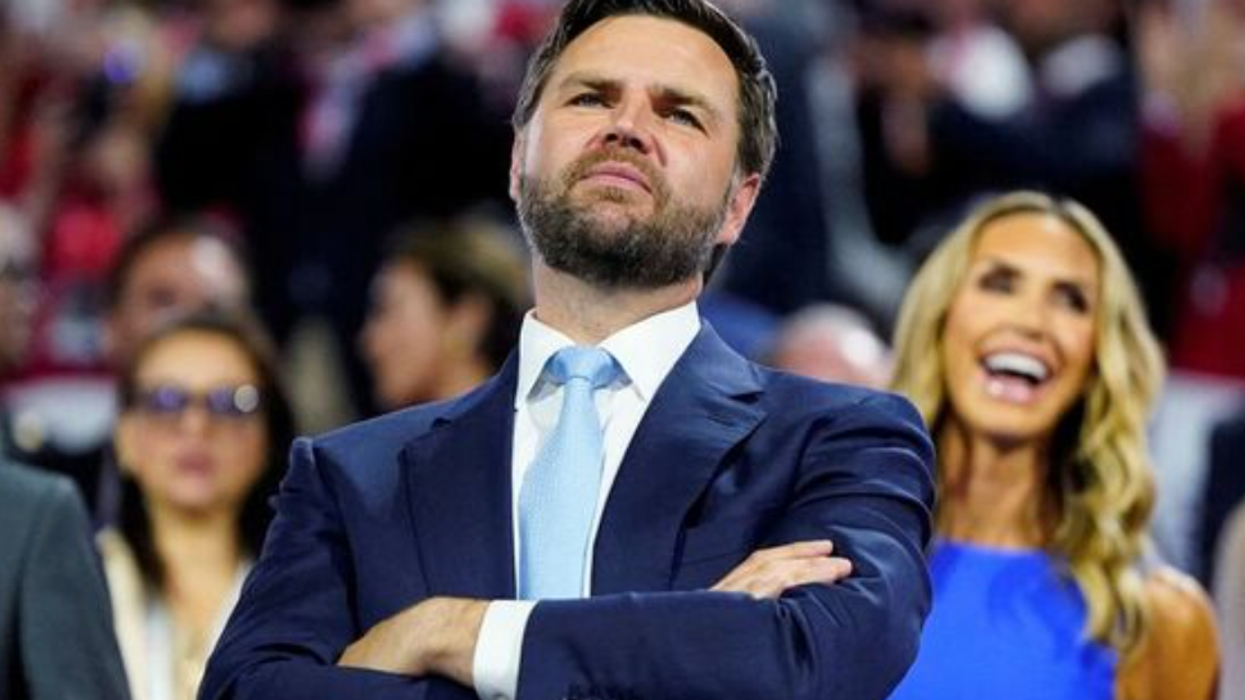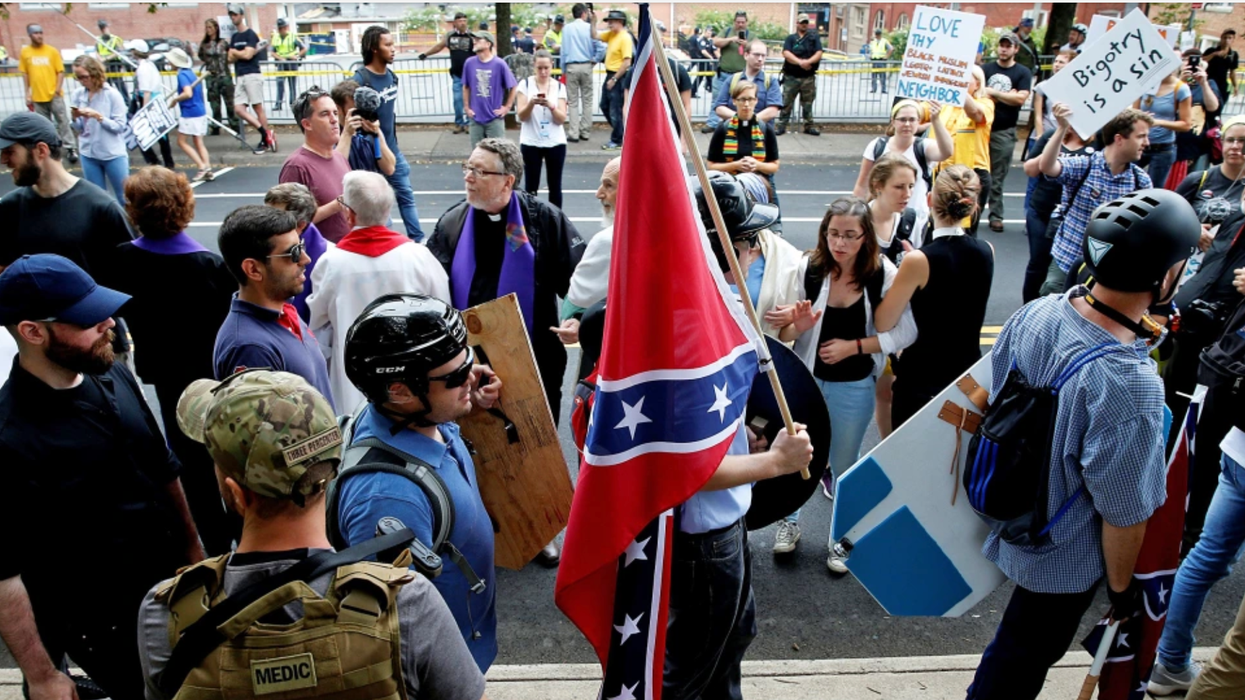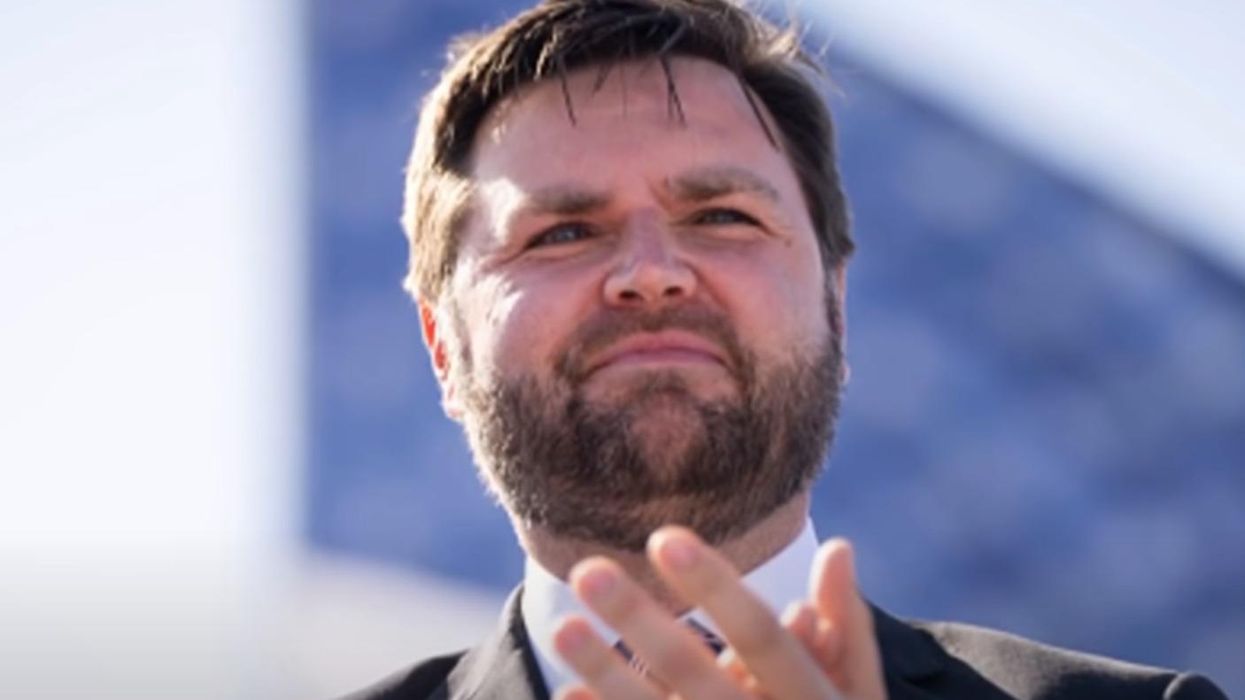Donald Trump’s vice-presidential running mate J.D. Vance is falsely claiming that as president in 2017, Trump did not make his infamous “very fine people on both sides” remarks after the deadly Charlottesville “Unite the Right” white supremacist neo-Nazi rally. Sen. Vance (R-OH) is also blaming the media for, he says, wrongly informing his views, which once included wondering if Trump could be “America’s Hitler.”
On August 15, 2017, then- President Trump held a press conference at his Trump Tower in Manhattan, just days after the “Unite the Right” rally which took place August 11 through August 12. (Full press conference transcript via Politico.)
During his lengthy remarks, Trump said, “I do think there is blame – yes, I think there is blame on both sides. You look at, you look at both sides. I think there’s blame on both sides, and I have no doubt about it, and you don’t have any doubt about it either.”
When a reporter told him, “The neo-Nazis started this thing. They showed up in Charlottesville,” Trump appeared to reject that statement.
“Excuse me, they didn’t put themselves down as neo-Nazis, and you had some very bad people in that group. But you also had people that were very fine people on both sides. You had people in that group – excuse me, excuse me. I saw the same pictures as you did. You had people in that group that were there to protest the taking down, of to them, a very, very important statue and the renaming of a park from Robert E. Lee to another name.”
Trump went on to denounce removing statutes of Civil War-era traitors, and to defend the Founders who owned slaves, before stating, “You know what? It’s fine, you’re changing history, you’re changing culture, and you had people – and I’m not talking about the neo-Nazis and the white nationalists, because they should be condemned totally – but you had many people in that group other than neo-Nazis and white nationalists, okay? And the press has treated them absolutely unfairly. Now, in the other group also, you had some fine people, but you also had troublemakers and you see them come with the black outfits and with the helmets and with the baseball bats – you had a lot of bad people in the other group too.”
In an appearance on the right wing Full Send podcast (full video) this week that posted Friday, Sen. Vance said, “I don’t know if you guys remember this. But there was this thing that happened in Charlottesville where a white supremacist killed this girl and, very tragic situation. And the media said Trump stood up for the white supremacist, and there was a time in my life where I would have believed the media, what they said about it, and then you go and read what the transcript of what he actually said. It’s like, wait a second, he actually condemned the white supremacist.”
(Vance’s suggestion that Trump condemned white supremacists is erroneous. During that press conference a reporter asked him specifically, “Why did you wait so long to denounce neo-Nazis?” which kicked off the “both sides” remarks. Trump on August 12 did not specifically condemn white supremacists, on August 14, after nationwide outrage, he did.)
“He never said that there were ‘very good people on both sides.’ What he said is that some of the protesters were good people, not like the white supremacist who murdered this girl. And you realize so much of what the media says about this guy is totally dishonest. I think once you accept that frame of mind, you start to think for yourself a little bit and when I started doing that, I started realizing one, he’s a good president, but two, he’s just not the guy. He’s not the scary person the media makes him out to be.”
Reprinted with permission from Alternet.












